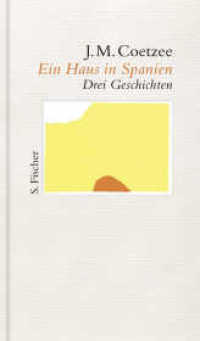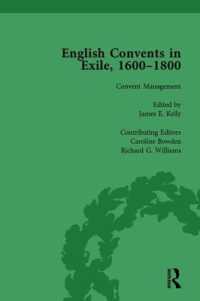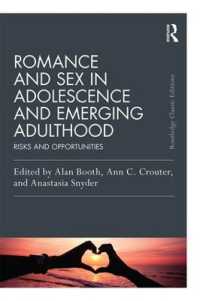- ホーム
- > 洋書
- > 英文書
- > Psychology
基本説明
The world's leading scholars in activity theory from 12 countries explore the challenges and new vistas for the theory.
Full Description
This book is a collection about cultural-historical activity theory as it has been developed and applied by Yrjö Engeström. The work of Engeström is both rooted in the legacy of Vygotsky and Leont'ev and focuses on current research concerns that are related to learning and development in work practices. His publications cross various disciplines and develop intermediate theoretical tools to deal with empirical questions. In this volume, Engeström's work is used as a springboard to reflect on the question of the use, appropriation, and further development of the classic heritage within activity theory. The book is structured as a discussion among senior scholars, including Y. Engeström himself. The work of the authors pushes on classical activity theory to address pressing issues and critical contradictions in local practices and larger social systems.
Contents
1. Activity theory between historical engagement and future-making practice Annalisa Sannino, Harry Daniels and Kris Gutierrez; Part I. Units of Analysis: 2. Cultural-historical activity theory and organization studies Frank Blackler; 3. Uses of activity theory in written communication and research David R. Russell; 4. On the inclusion of emotions, identity, and ethico-moral dimensions of actions Wolff-Michael Roth; Part II. Mediation and Discourse: 5. Mediation as a means of changing collective activity Vladislav A. Lektorsky; 6. Digital technology and mediation: a challenge to activity theory Georg Rückriem; 7. Contextualizing social dilemmas in institutional practices: negotiating objects of activity in labour market organizations Åsa Mäkitalo and Roger Säljö; Part III. Expansive Learning and Development: 8. The concept of development in cultural-historical activity theory: vertical and horizontal Michael Cole and Natalia Gajdamashko; 9. Two theories of organizational knowledge and creation Jaakko Virkkunen; 10. Contradictions of high technology capitalism and the emergence of new forms of work Reijo Miettinen; 11. Spinozic re-considerations on the concept of activity: politico-affective process and discursive practice in the transitive learning Shuta Kagawa and Yuji Moro; Part IV. Subjectivity, Agency, and Community: 12. From the systemic to the relational: relational agency and activity theory Anne Edwards; 13. Expansive agency in multi-activity collaboration Katsuhiro Yamazumi; 14. The communicative construction of community: authority and organizing James R. Taylor; 15. Research leadership: productive research communities and the integration of research fellows Sten Ludvigsen and Turi Øwre Digernes; Part V. Interventions: 16. Who is acting in an activity system Ritva Engeström; 17. Past experiences and recent challenges in participatory design research Susanne Bødker; 18. Clinic of activity: the dialogue as instrument Yves Clot; 19. Epilogue: the future of activity theory Yrjö Engeström.








